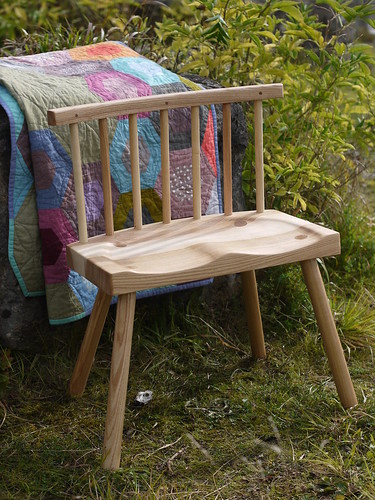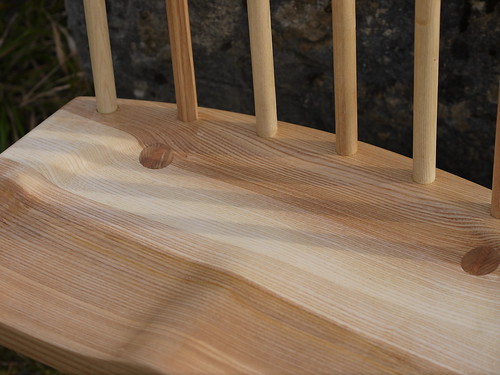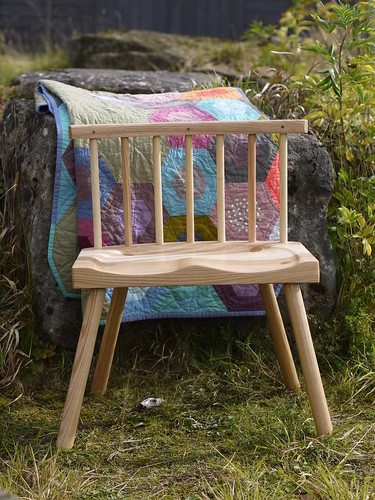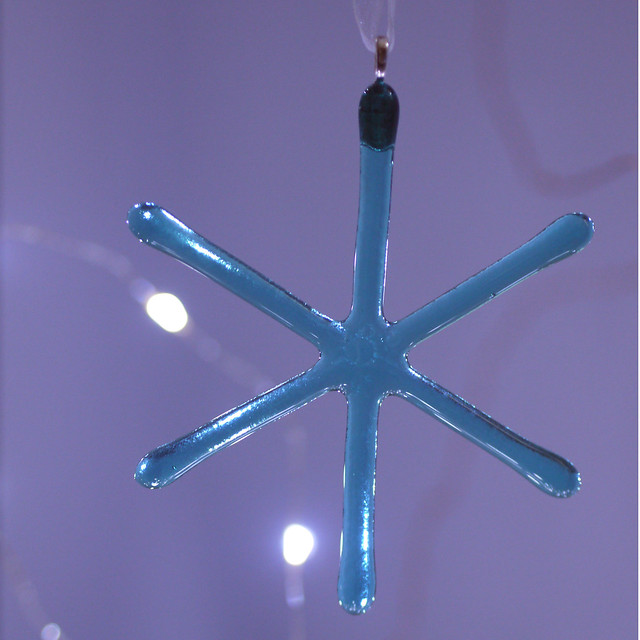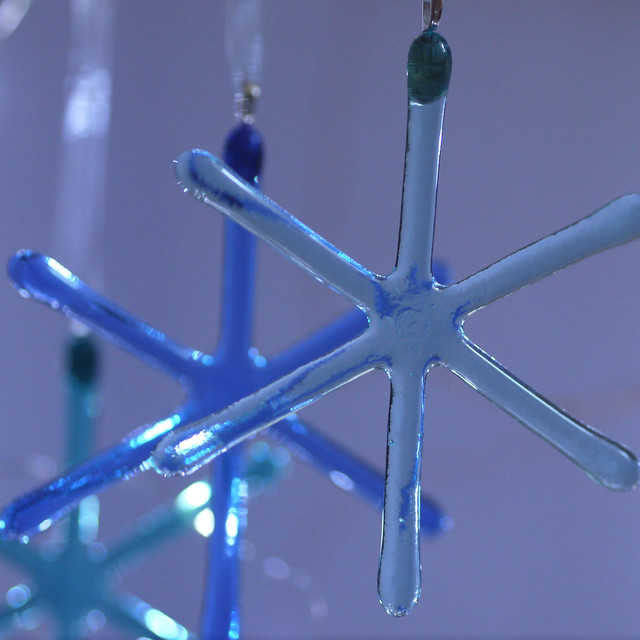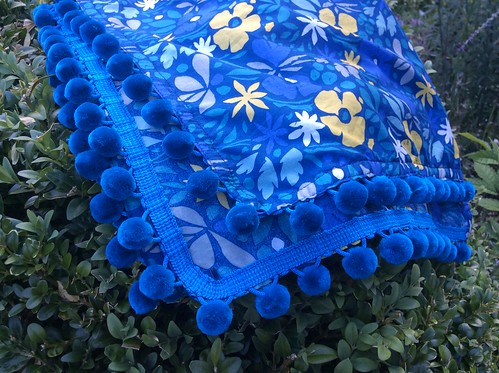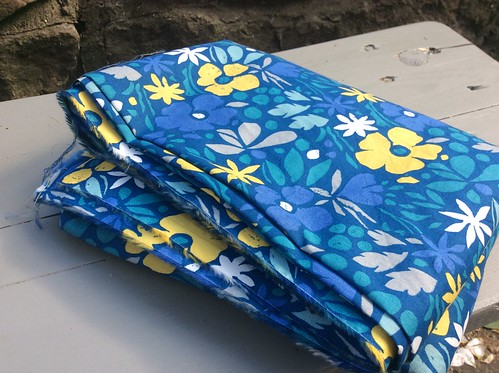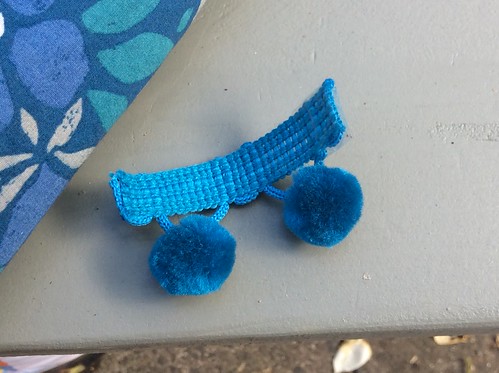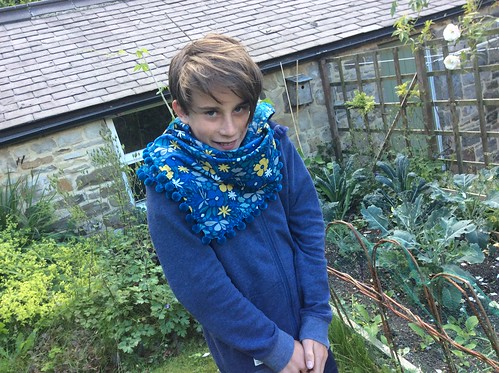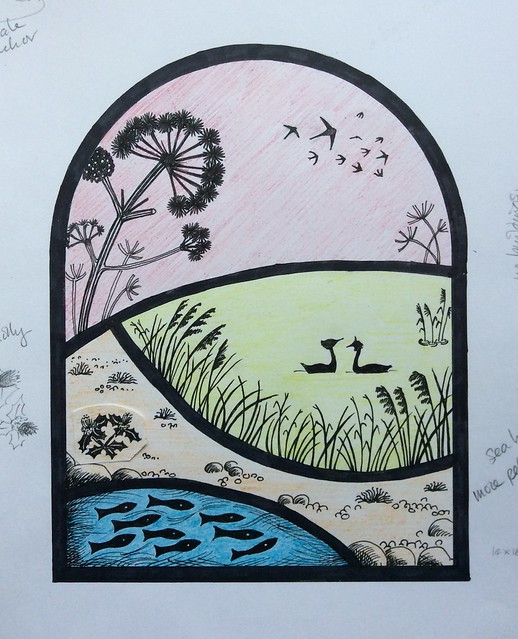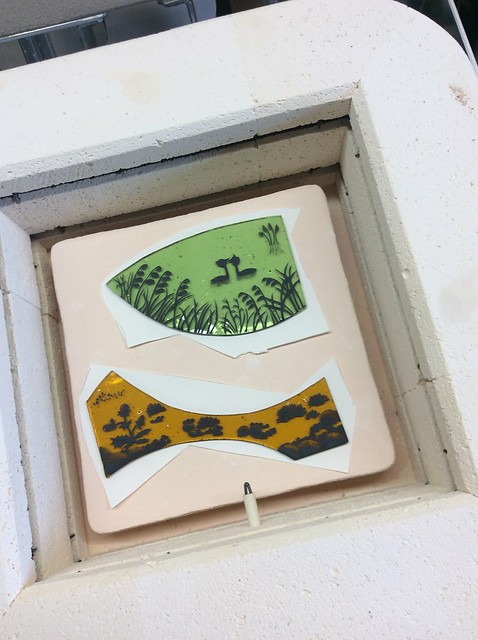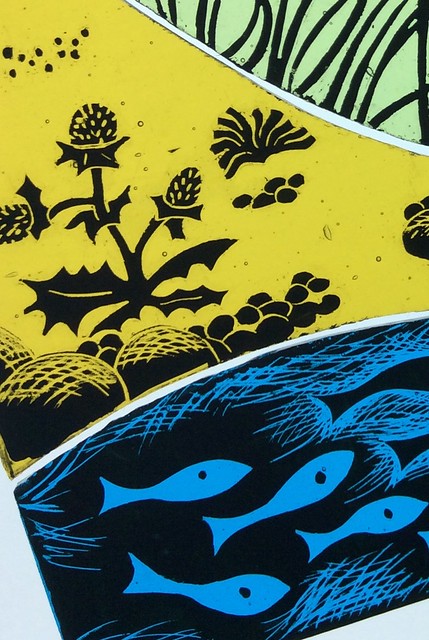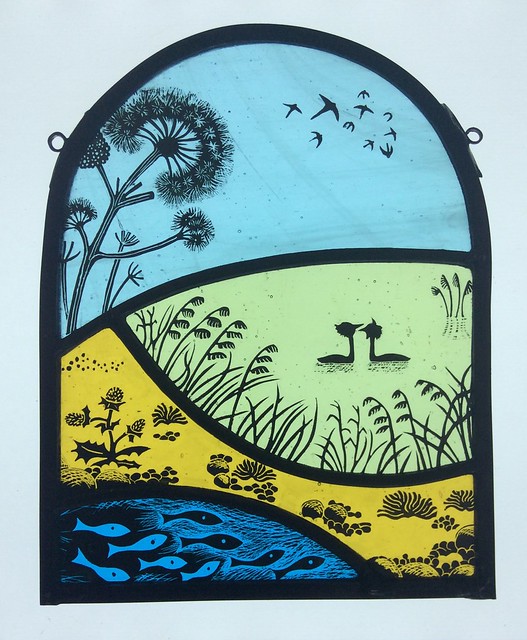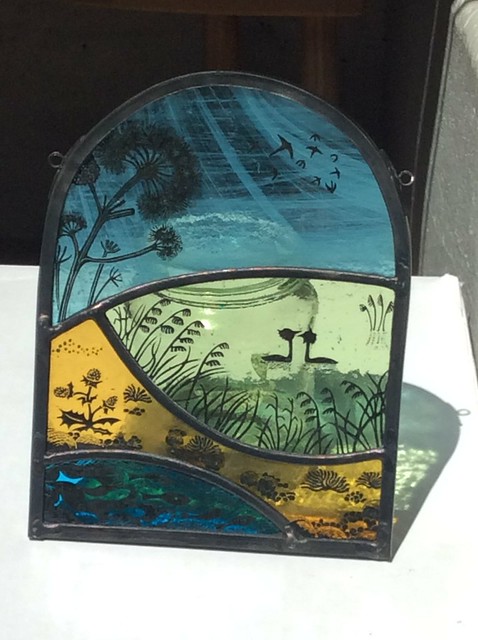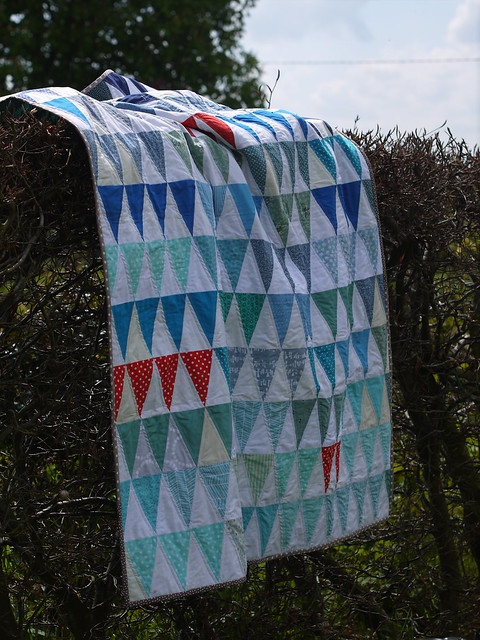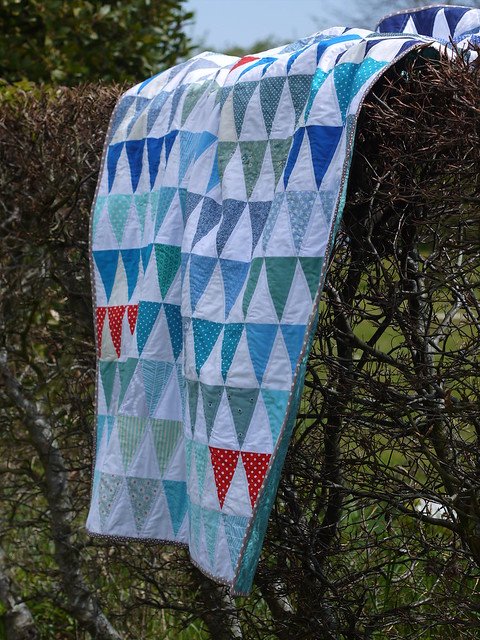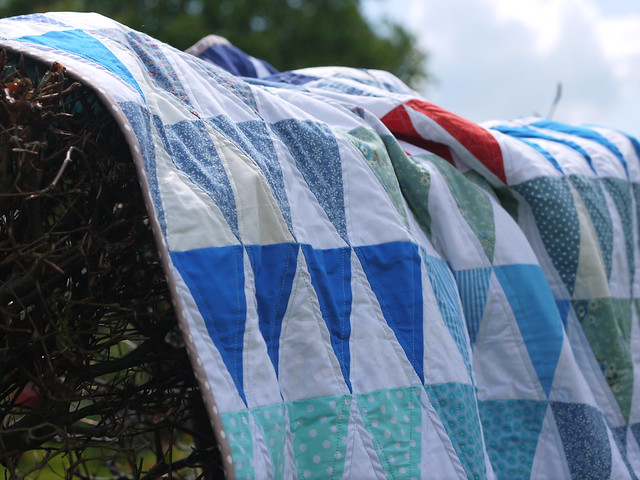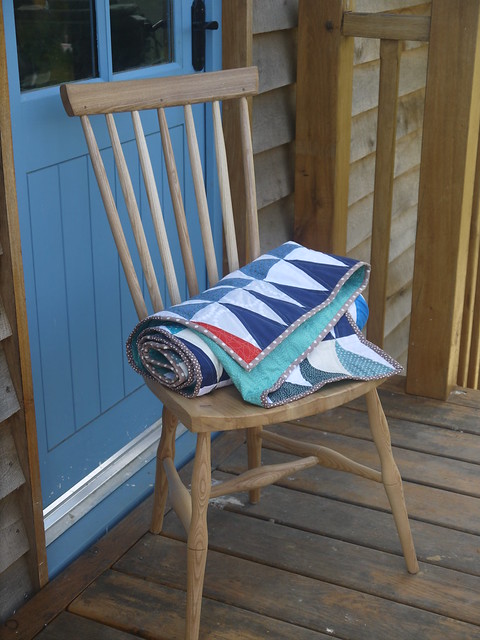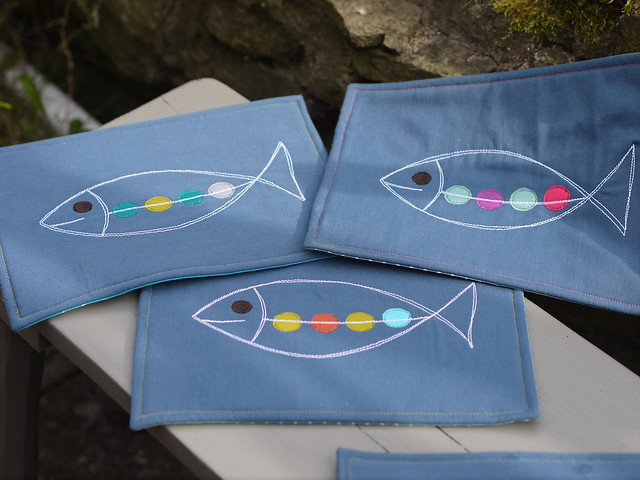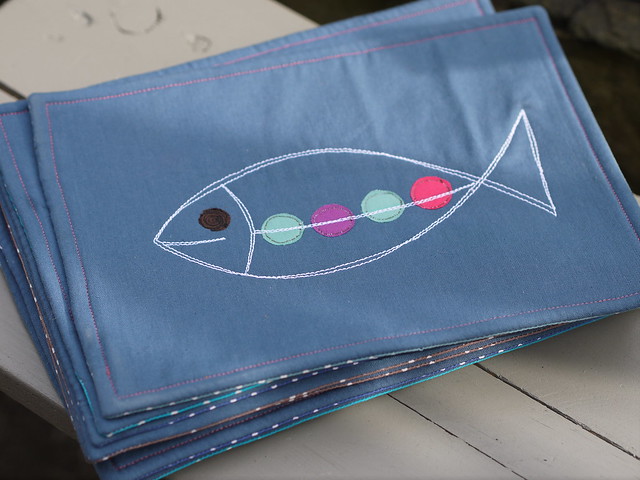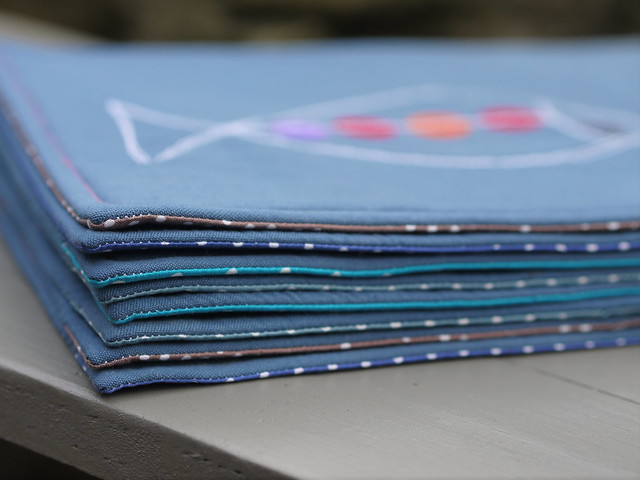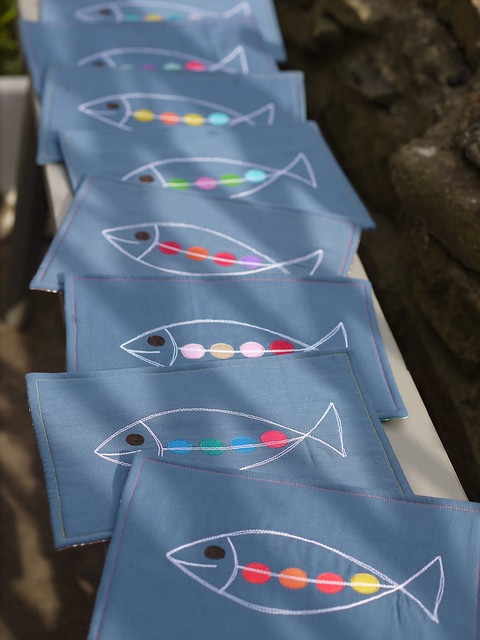About 20 years ago, I was given this sewing machine by a friend - it had belonged to her mother, and she wanted it to go to someone who would use it. On and off, I have used it, but I feel I should do more sewing with it as it's such a lovely machine.
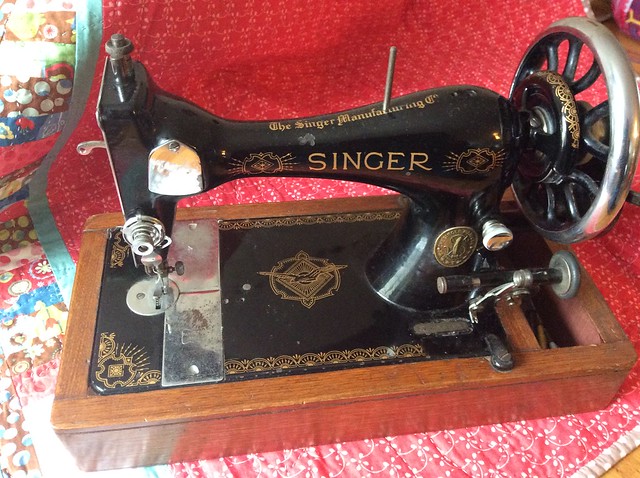
The serial number dates the machine casting to 1898, but the patterns in the enamel don't fit with other machines of that age - they look much more like 1930s graphics. So it's exact age is a mystery, but it's probably at least 90 years old. As it's made of a lump of cast iron it's very heavy, but as long as you don't have far to carry it this is an advantage, as the machine doesn't wobble or rattle. When in action the noise from it is a gentle PRRRRRR, with a rhythmic clicking as the needle moves up and down.
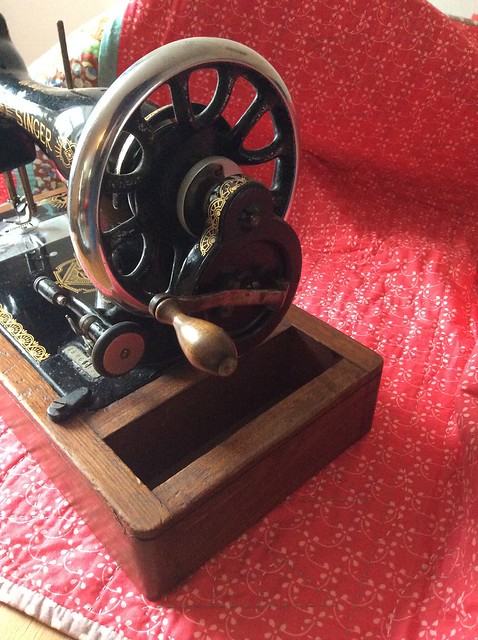
At the right hand end are the fly-wheel and hand crank - the fly-wheel does two jobs, because it helps to keep the machine running smoothly as you crank it, but it also winds the bobbins if the bobbin-winder is pushed forward so that it's rubber wheel runs on the rim of the fly-wheel. So clever - and, you can disengage the needle mechanism while you wind your bobbin, just as on modern machines.
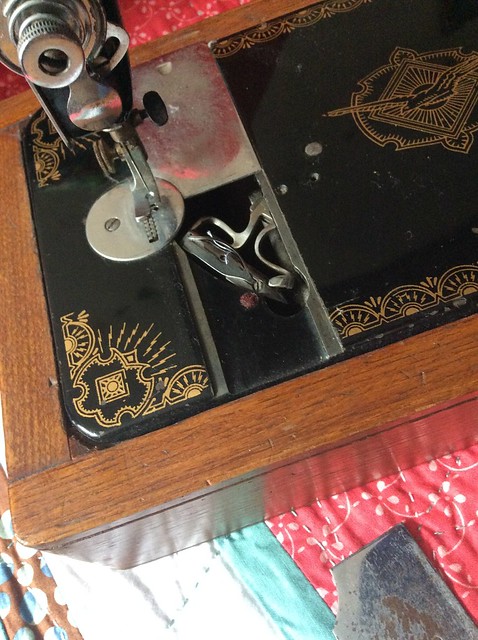
This machine has a 'vibrating' bobbin case; instead of spinning on a fixed horizontal spindle like in a modern machine, this bobbin, in it's shuttle-shaped case, moves backwards and forwards to take the bobbin thread through the loop of the top thread. According to
Wikipedia, this vibrating system was replaced with the modern rotary bobbins because they allow the machine to run faster, with less vibration - although I must say that my very solid Singer machine vibrates a whole lot less than my modern, plastic, electric motor machine!
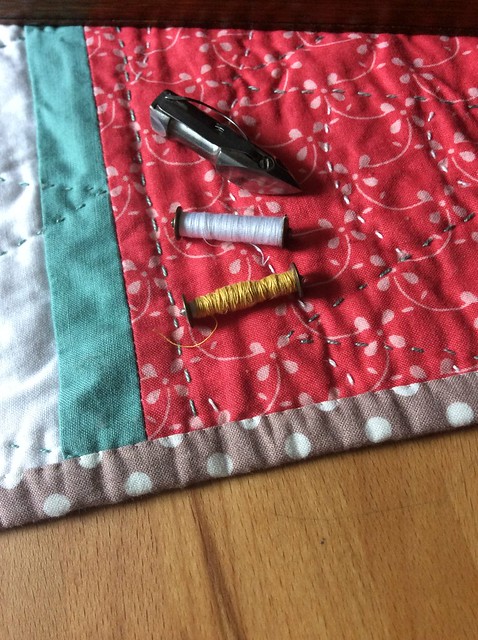
So, as I would really like to complete a whole project on this machine, I am having a think about what might be possible. It doesn't do zig-zag (and possibly not backwards either), but stitch length and tension are adjustable. Straight seams are obviously easier than curved, as you only have one hand to steer the fabric with (yes, the other is your motor). Suggestions are welcome!

Vicky xx
